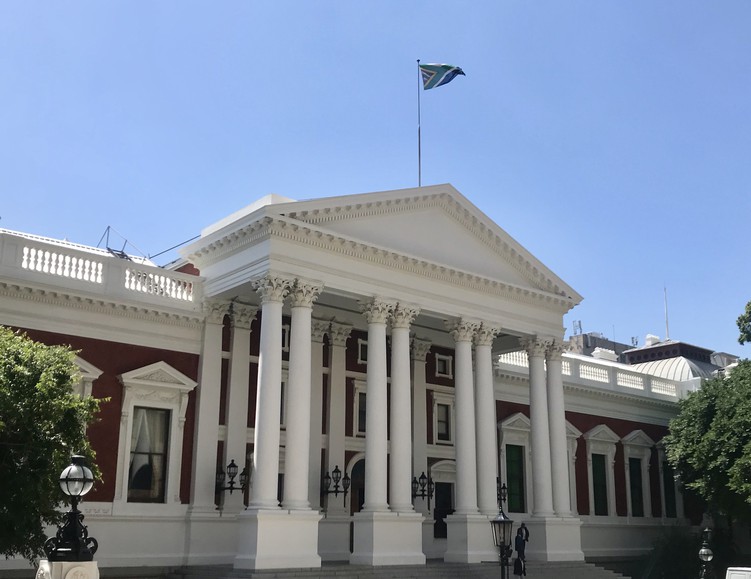
26 October 2020
Parliament has begun the process to appoint a new chair of the National Lotteries Commission. Archive photo: Brent Meersman
A senior ANC member tried unsuccessfully to have members of the media and civil society barred from a public, virtual meeting of a parliamentary portfolio that discussed the appointment of a new board chairperson for the National Lotteries Commission.
Among those attending Friday’s meeting of the portfolio committee for Trade, Industry and Competition were a reporter for GroundUp, and representatives of watchdog organisations Corruption Watch and OUTA.
Both Corruption Watch and OUTA are actively monitoring the process to appoint a replacement for the current scandal-ridden NLC board chairman Alfred Nevhutanda. GroundUp and the two organisations had all requested, and been emailed, official invites to join the meeting by the committee’s secretary, Andre Hermans.
At the start of the meeting ANC committee member Simanga Mbuyane claimed that the committee had agreed to hold the meeting in private. But it was pointed out that parliamentary and portfolio committee sessions are public by default, except in specific designated instances.
A compromise was reached with committee members deciding that a private meeting of the committee would draw up specific questions candidates would be asked in their interviews to ensure that nobody “gets an unfair advantage.”
On Friday, the committee discussed a general framework document that had been prepared by the committee’s secretariat setting out skills, competencies and experience required for the post.
Nevhutanda’s tenure ends at the end of November, with a new chairperson supposed to take over on 1 December. But it seems highly unlikely that the appointment process will be completed within this tight timeframe, as MPs are yet to receive a shortlist of candidates.
The Department of Trade, Industry and Competition (DTIC) is currently compiling a shortlist of candidates, who must still undergo security, financial and other vetting. A period of a week is also needed for public comment once shortlisted candidates’ names are made known.
Nontombi Matomela, DTIC Operations Director, said the department was currently assessing the “nominations” that had been received and would be making a submission to Parliament “soon”.
Once the shortlisting of candidates is done their names will be circulated for at least a week for public comment. The shortlist would be published on Parliament’s website and its various social media platforms.
The committee also debated – but failed to come to a final decision – as to whether the interviews of candidates would be conducted virtually or face-to-face in Parliament. Concerns were raised about the safety of candidates and members of the committee with Covid1-9 comorbidities.
Parliament was unable to undertake a “hybrid process” (with some interviews done virtually and others in person) and the committee would have to choose one or the other method, committee members were told.
Mathew John Cuthbert, the Democratic Alliance shadow minister for Trade, Industry and Competition, told the meeting: “We are really hopeful that this process of appointing a new NLC chairperson will turn over a new leaf … The NLC has been riddled with corruption and maladministration over the past ten years and I think it is very important that we are able to restore the credibility to this organisation so that it is able to continue the work that it is intended to do … to help non-profits and non-governmental organisations to reach out to the most vulnerable in our society and not to fill the pockets of people who use their political connections at the expense of the public.”
Thembi Msane, an EFF member of the committee, said she would like “an explanation” of how many candidates had applied and the names of the people who led the shortlisting. She also said the committee should be told what process the listing had followed and committee members should also be furnished with an explanation of “why the application timeframe was so short, as it left people insufficient time for the application”.
Corruption Watch’s Kavisha Pillay, who had earlier made a submission to the committee on the process that should be followed for the appointment, said: “I am glad that the committee has taken into account what civil society has recommended.”
CORRECTION: Simanga Mbuyane’s first name was spelt incorrectly in an earlier version of this article.